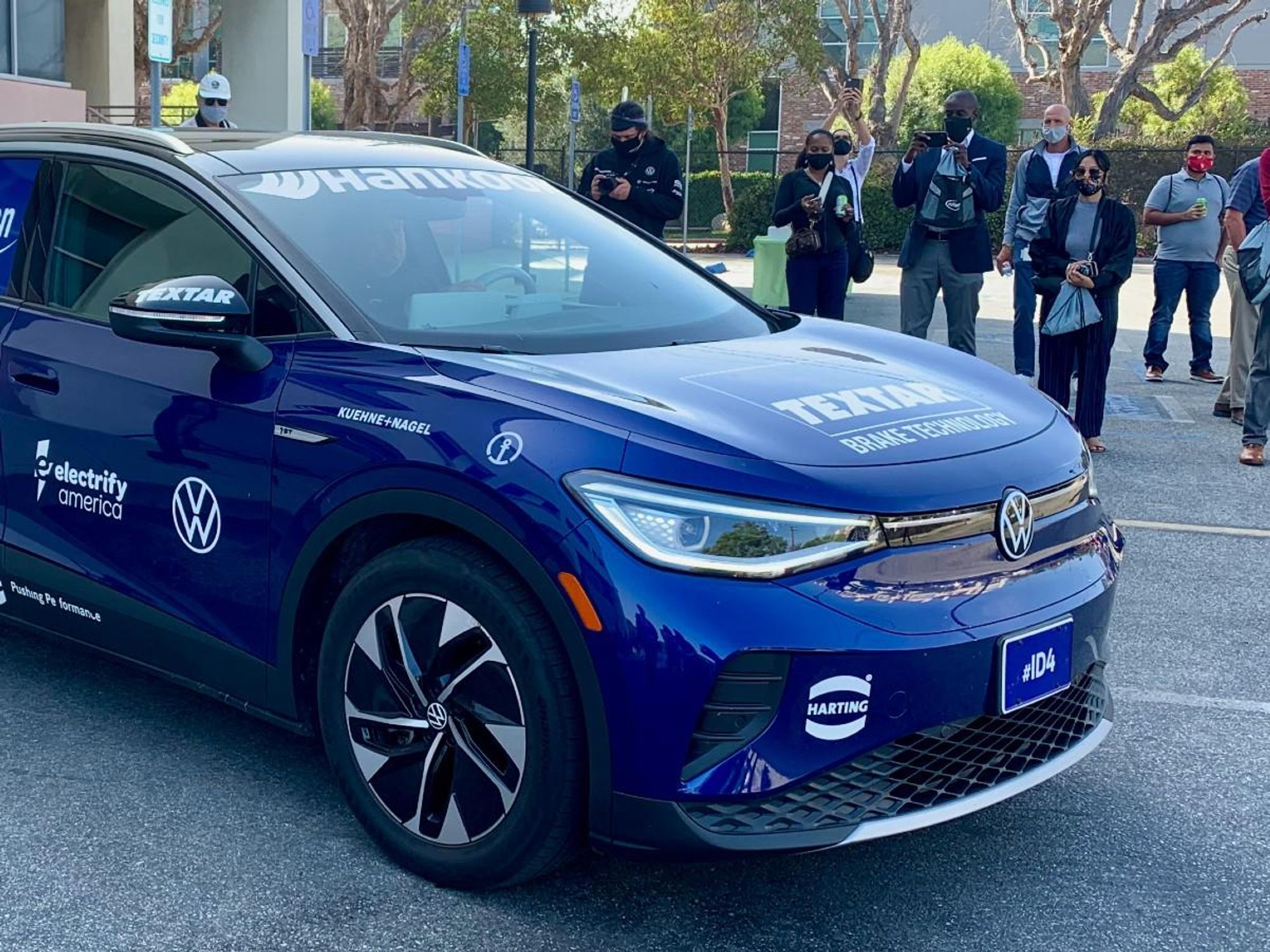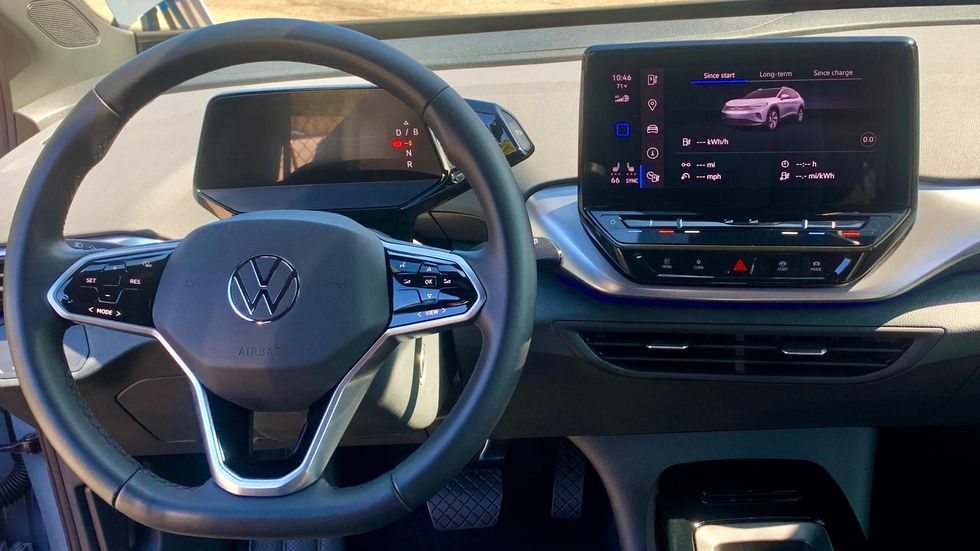As a Global Chip Shortage Hits Electric Vehicle Production, Infineon Sees A Surge Coming
Zac Estrada is a reporter covering transportation, technology and policy. A former reporter for The Verge and Jalopnik, his work has also appeared in Automobile Magazine, Autoweek, Pacific Standard, Boston.com and BLAC Detroit. A native of Southern California, he is a graduate of Northeastern University in Boston. You can find him on Twitter at @zacestrada.

As the White House continues its push for electric vehicles, the demand for semiconductors – a key component in electric vehicles – is about to surge. That spike will mean big business for German semiconductor producer Infineon Technologies, which has its 300-person U.S. headquarters in El Segundo.
Microchips and semiconductors have established vital roles in everyday devices. While laptops, phones and other mobile devices might be the first things to come to mind, transportation—in particular cars—takes a sizable portion of the demand.
Infineon is a significant semiconductor supplier to the automotive and transportation industry, in particular to the Volkswagen Group, which is beginning to deliver on its promises of many electric vehicle launches throughout the decade. Infineon has more than 50 of its semiconductors in the VW ID.4, a compact electric SUV that went on sale in the U.S. earlier this year. It also supplies semiconductors to Electrify America, an EV charging company owned by VW Group of America.
VW's push has come in a year when a global microchip shortage caused by production curtailing in last year's onset of the Covid-19 pandemic. Automakers, in particular, have scrambled to continue building new cars. Dealership lots across the country are running out of inventory and used car prices remain high. At the same time, President Biden has called for a massive increase in electric, hybrid and fuel cell vehicles production. He aims to have half of all vehicles sold by 2030 be non-gas powered.
"It's an industry problem," said Shawn Slusser, Infineon senior vice president for marketing and distribution in El Segundo. "The industry overall is in a situation where production and demand are not matched."
A typical car has about $450 worth of power semiconductors to operate features that go from the radio and navigation system to the automatic headlights and windshield wipers, said Slusser. However, that number roughly doubles for EVs when factoring the microchips needed for Infineon's power module to power the car.
The company also supplies semiconductors to Electrify America, an EV charging company owned by VW Group of America. Infineon has more than 50 of its semiconductors in the VW ID.4, a compact electric SUV that went on sale in the U.S. earlier this year.
Auto industry analysis firm IHS Markit predicted in the Wall Street Journal last week that microchip and semiconductor production will allow auto production to get closer to normal by the end of 2022, although some of the problems are likely to stretch into 2023.
And it's a problem that's been brewing long before stay-at-home orders.
"There's a misconception that chips have only been going into EVs recently, but it's been happening since the '80s," IHS Markit analyst Phil Amsrud told dot.LA. "But what it used to be was that there was automotive and everything else. Now there's much more commonality."
Slusser said Infineon has seen demand for semiconductors steadily rising over the last several years. In 2018, the company decided to add capacity with a facility in Austria. But doing so takes between two to three years and billions of dollars — even in a well-functioning climate. And at the time, there were fewer government pushes and mandates to get consumers to buy EVs.
"The timing of how much capacity we need is also dependent on EV adoption," Slusser said. "Is [demand] going to look like a steady incline or a sharp curve?"
Amsrud said EV production may be helped because the semiconductors going into EV power modules don't go into consumer electronics.
"In this case, it may end up being a benefit," he said. "Those are fairly specialized and won't be competing with consumer products or as many markets for the silicon carbide components."
Correction: An earlier version of this post mischaracterized the number of semiconductors in a typical car and the cost of upgrading a semiconductor facility.
Zac Estrada is a reporter covering transportation, technology and policy. A former reporter for The Verge and Jalopnik, his work has also appeared in Automobile Magazine, Autoweek, Pacific Standard, Boston.com and BLAC Detroit. A native of Southern California, he is a graduate of Northeastern University in Boston. You can find him on Twitter at @zacestrada.





 Image Source: JetZero
Image Source: JetZero